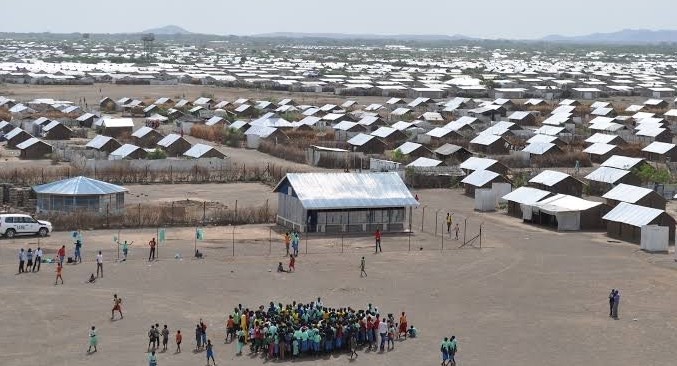WFP slashes food rations by 80 per cent in Kakuma, Dadaab refugee camps

In May, WFP warned that refugees in Kenya will be at risk of heightened levels of food insecurity owing to critical funding shortages.
The World Food Programme (WFP) has begun implementing a new food assistance system in Kenya's Kakuma and Dadaab refugee camps that prioritises aid distribution based on need, amid drastic cuts to supplies caused by reduced global funding, including significant cuts from the United States Agency for International Development (USAID).
The new approach shifts focus from refugee status alone to a detailed needs assessment, allowing WFP to target those most in need amid shrinking resources.
Under the revised system, the WFP is cutting food aid by 60 per cent for the most vulnerable groups, such as pregnant women and people with disabilities, while refugees with some income will face an 80 per cent reduction.
More To Read
- KNCHR report casts doubt on Kenya’s commitment to refugee protection
- How Trump–Ruto health deal fills the void left after USAID exit
- WFP warns of hunger crisis in Nigeria as 35 million face food shortages
- Refugee group raises alarm over lending traps facing displaced families
- Families in Sudan ‘running out of time’ as hunger spreads
- ‘No rain, no food, no life’: Amnesty slams global inaction as Somalia’s drought turns deadly
The changes started on Monday as nearly 800,000 refugees from Somalia and South Sudan continue to rely heavily on humanitarian assistance in the two camps.
The cuts and new distribution system have sparked unrest in the camps, with protests last week turning violent and leaving one person dead.
"There has been a lot of tension in the last couple of weeks or so. People were very angry about what WFP is calling the priority food distribution, where some people will not get food at all and others are going to get a small fraction of the food," Al Jazeera's Catherine Soi said, reporting from Kakuma.
Additionally, malnutrition remains a critical concern in both camps, with the Global Acute Malnutrition (GAM) rate among refugee children and pregnant or breastfeeding women exceeding 13 per cent, well above the emergency threshold of 10 per cent.
According to the WFP, current food rations provide only 40 per cent of the daily recommended intake of 2,100 calories and are shared among an increasing population.
"Already, the food that is being issued is quite low, 40 per cent of the recommended ration, and this is being shared by a bigger chunk of the population," said a WFP worker.
In May, WFP warned that refugees in Kenya will be at risk of heightened levels of food insecurity owing to critical funding shortages.
"WFP's operations supporting refugees in Kenya are under immense strain," Baimankay Sankoh, WFP's Deputy Country Director in Kenya, said then.
"With available resources stretched to their limits, we have had to make the difficult decision to again reduce food assistance. This will have a serious impact on vulnerable refugees, increasing the risk of hunger and malnutrition."
Top Stories Today













































